 W
WSir George Arthur, 1st Baronet was Lieutenant Governor of British Honduras from 1814 to 1822, Van Diemen's Land from 1823 to 1837. The campaign against Aboriginal Tasmanians, known as the Black War, occurred during this term of office. He later served as Lieutenant Governor of Upper Canada from 1838 to 1841, and Governor of Bombay from 1842 to 1846.
 W
WSir Frederick Augusta Barnard was principal librarian to George III during much of the British King's reign. Barnard developed the library collection systematically, seeking guidance from noted intellectuals including writer and lexicographer Dr. Samuel Johnson.
 W
WSir Robert Barrie KCB, KCH was a British officer of the Royal Navy noted for his service in the War of 1812. He was helped early in his naval career by the patronage of his uncle, Sir Alan Gardner, who arranged for him to take part in the Vancouver Expedition. When the Pacific Coast was explored, he had served as a midshipman with Captain Vancouver in 1791.
 W
WGeneral Sir Edward Bowater KCH was a British soldier and courtier.
 W
WSir Courtenay Boyle, KCH was an officer of the Royal Navy during the French Revolutionary Wars. In 1807 he served as a Member of Parliament for Bandon.
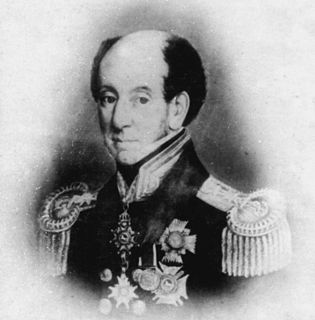 W
WSir James John Gordon Bremer was a Royal Navy officer. He served in the Napoleonic Wars, First Anglo-Burmese War, and First Anglo-Chinese War. In China, he served twice as commander-in-chief of British forces.
 W
WMajor-General Sir Charles Broke Vere, né Broke, was a British soldier and Conservative Member of Parliament.
 W
WAdmiral Sir Charles Bullen was a highly efficient and successful naval officer who served in the Royal Navy during the French Revolutionary and Napoleonic Wars and distinguished himself at the Glorious First of June, the battle of Camperdown and the battle of Trafalgar.
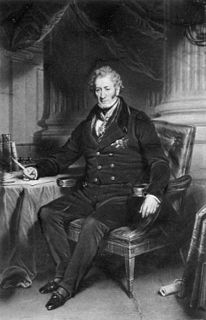 W
WSir William Burnett, KCB, FRS was a British physician who served as Physician-General of the Royal Navy.
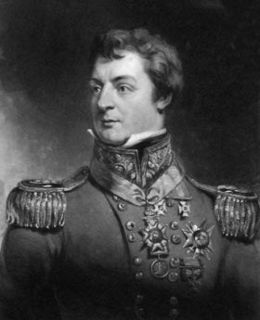 W
WMajor-general Sir James Carmichael-Smyth, 1st Baronet, was a British Army officer and colonial administrator.
 W
WWilliam Frederick Chambers, KCH (1786–1855) was a British physician.
 W
WLieutenant-Colonel Andrew Clarke KCH was Governor of Western Australia from 1846 until his death in 1847.
 W
WGeneral Sir Arthur Benjamin Clifton KSA KSW was a British soldier who fought in the Peninsular War and commanded the Second Union Cavalry Brigade at the Battle of Waterloo on 18 June 1815.
 W
WSir John Ponsonby Conroy, 1st Baronet, KCH was a British army officer who served as comptroller to the Duchess of Kent and her young daughter, Princess Victoria, the future Queen of the United Kingdom.
 W
WMajor-General Sir Henry Frederick Cooke ('Kangkook') CB, KCH, was a British soldier and Tory politician.
 W
WLieutenant General Sir Willoughby Cotton was a British soldier.
 W
WSir Charles Cunningham KCH was an officer of the Royal Navy during the late eighteenth and early nineteenth century. He saw action during the American War of Independence and the French Revolutionary and Napoleonic Wars, eventually rising to the rank of Rear-Admiral.
 W
WSir Edward Cust, 1st Baronet, KCH was a British soldier, politician and courtier.
 W
WLieutenant-General Sir James Charles Dalbiac, (1776–1847) was a British Army officer and Member of Parliament.
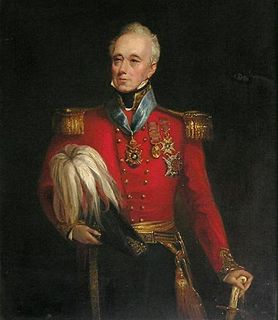 W
WGeneral Sir William Gabriel Davy, was a British Army officer who fought in the Peninsular War.
 W
WSir Robert Henry Dick KOV was a Scottish soldier, son of a doctor in the East India Company's service.
 W
WMajor General Sir Alexander Dickson was a British Army officer who served in the artillery. He fought at many battles during the Napoleonic Wars. Arthur Wellesley, 1st Duke of Wellington had the highest opinion of his abilities and made him the effective commander of his army's artillery during the latter part of the Peninsular War.
 W
WLieutenant-General Sir Neil Douglas was a British Army officer who fought at the 1815 Battle of Waterloo and later became Commander-in-Chief, Scotland.
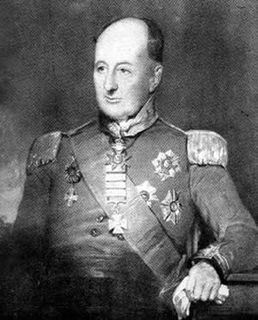 W
WLieutenant General Sir Benjamin D'Urban was a British general and colonial administrator, who is best known for his frontier policy when he was the Governor in the Cape Colony.
 W
WLieutenant-General Sir John Elley KMT KSG was a British soldier who joined the cavalry as a private, and rose to general officer rank. He fought with distinction during the French Revolutionary and Napoleonic Wars, and later served as the last Governor of Galway and as Colonel of the 17th Lancers.
 W
WSir John Franklin was a British Royal Navy officer and Arctic explorer. After serving in wars against Napoleonic France and the United States, he led two expeditions into the Canadian Arctic, in 1819 and 1825, and served as Lieutenant-Governor of Van Diemen's Land from 1839 to 1843. During his third and final expedition to force the Northwest Passage in 1845, Franklin's ships became icebound off King William Island in what is now Nunavut, where he died in June 1847. The icebound ships were abandoned ten months later and the entire crew died, from causes such as starvation, hypothermia, and scurvy.
 W
WGeneral Sir Robert William Gardiner was Master Gunner, St James's Park, the most senior Ceremonial Post in the Royal Artillery after the Sovereign.
 W
WColonel Sir Thomas Noel Harris was a British Army officer who fought during the Peninsular War and the Waterloo Campaign before finishing his career as Chief Magistrate of Gibraltar.
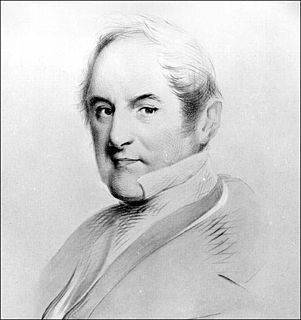 W
WLieutenant-General Sir John Harvey, was a British Army officer and a lieutenant governor.
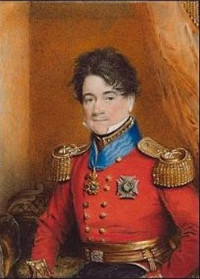 W
WGeneral Sir Thomas Hawker KCH was a British Army cavalry officer. Hawker began his career in the 11th Light Dragoons in 1795 and fought with them during the 1799 Anglo-Russian invasion of Holland. In 1804, he purchased the rank of major with the 20th Light Dragoons and served with them in Spain during the Peninsular War. He was promoted to command of the regiment in 1808. Hawker served in the force sent to occupy the Republic of Genoa in 1814 and shortly after was promoted to colonel and given command of a light cavalry brigade. Spending some time on half pay after the end of the Napoleonic Wars he returned to active service as lieutenant-colonel of the 13th Light Dragoons. Hawker was in the East Indies between 1822--26 and 1830-36 and was promoted to major-general in 1825. He was appointed a Knight Commander of the Royal Guelphic Order in 1837 and colonel of the 6th Regiment of Dragoon Guards in 1839. Hawker was promoted to the brevet rank of general in 1854.
 W
WSir Francis Bond Head, 1st Baronet KCH PC, known as "Galloping Head", was Lieutenant-Governor of Upper Canada during the rebellion of 1837.
 W
WAdmiral Sir James Hillyar KCB KCH was a prominent British Royal Navy officer of the early nineteenth century, who is best known for his service in the frigate HMS Phoebe during the Napoleonic Wars and the War of 1812. While in command of Phoebe, Hillyar was present at the Invasion of Ile de France in 1810, was heavily engaged at the Battle of Tamatave in 1811 and captured the USS Essex off Valparaíso in Chile in 1814. In addition, Hillyar was engaged in numerous other operations, his first battle occurring in 1781 off Boston. He remained in the Navy until his death in 1843, and was active at sea during the 1830s, commanding fleets in the North Sea and off Portugal. He was knighted twice and two of his sons later became full admirals, Charles Farrell Hillyar and Henry Shank Hillyar.
 W
WSir Salusbury Pryce Humphreys, later called Salusbury Pryce Davenport, was an officer of the Royal Navy who saw service during the French Revolutionary and Napoleonic Wars and the War of 1812, rising to the rank of rear admiral.
 W
WSir Patrick Lindesay, was a Scottish military officer during the Napoleonic Wars and Peninsular War but is most noted as having served as Acting Governor of New South Wales, Australia in 1831. Mount Lindesay (Queensland), Mount Lindesay and Lindesay River in Australia are all named after him.
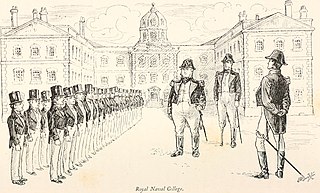 W
WSir John Wentworth Loring, KCB, KCH was a Royal Navy officer of the early nineteenth century who is best known for his service in the Napoleonic Wars as a frigate commander. Born in the Thirteen Colonies at the outbreak of the American War of Independence, Loring's family fled to Britain and he subsequently joined the Royal Navy aged 13. In 1793, aged 17, Loring was badly wounded in combat at the start of the French Revolutionary Wars. He subsequently served throughout the following 23 years of warfare between Britain and France, achieving success in command of the frigate HMS Niobe. After the war he served in an influential position at the Royal Naval College, Portsmouth and eventually became a full admiral.
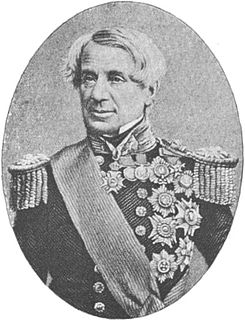 W
WAdmiral Edmund Lyons, 1st Baron Lyons, was an eminent British Admiral of the Royal Navy, and an eminent British diplomat, who was responsible for encouraging the Crimean War, during which he was Commander-in-Chief of the Mediterranean Fleet, and for the securing the subsequent allied victory in the conflict, through his efforts at the Siege of Sevastopol (1854–1855) with both the Navy and the British Army.
 W
WGeneral Sir James Macdonell or Macdonnell was a Scottish officer of the British Army.
 W
WMaximilian Anton Lamoral, Hereditary Prince of Thurn and Taxis, full German name: Maximilian Anton Lamoral Erbprinz von Thurn und Taxis was the Hereditary Prince of Thurn and Taxis from birth until his death in 1867.
 W
WMajor-General Sir Evan John Murray-Macgregor of Macgregor, 2nd Baronet, was a Scottish colonial administrator and senior British army officer.
Sir Woodbine Parish KCH was a British diplomat, traveller and scientist.
 W
WBaron Luitbert Alexander George Lionel Alphons von Pawel-Rammingen, KCB, KCVO, KCH, VD was a German-born nobleman who became a naturalised British subject in 1880 when he married Princess Frederica of Hanover.
 W
WAdmiral Sir Fleetwood Broughton Reynolds Pellew CB KCH was an officer of the Royal Navy who served during the French Revolutionary and Napoleonic Wars.
 W
WMajor General Hon. Sir Frederick Cavendish Ponsonby was an Anglo-Irish military officer.
 W
WRear Admiral Sir Home Riggs Popham, KCB, KCH, was a Royal Navy commander who saw service against the French during the Revolutionary and Napoleonic Wars. He is remembered for his scientific accomplishments, particularly the development of a signal code that was adopted by the Royal Navy in 1803.
 W
WSir Robert Ker Porter, KCH (1777–1842) was a Scottish artist, author, diplomat and traveller. Known today for his accounts of his travels in Russia, Spain, and Persia, he was one of the earliest panorama painters in Britain, was appointed historical painter to Tsar Alexander I of Russia and served as British consul in Venezuela.
 W
WLieutenant-General Sir George Augustus Quentin (1760–1851) was a Hanoverian British Army officer who fought in the Napoleonic Wars.
 W
WGeneral Sir James Henry Reynett KCB KCH was a British Army officer who became Lieutenant Governor of Jersey.
 W
WGeneral Sir Phineas Riall, KCH was the British general who succeeded John Vincent as commanding officer of the Niagara Peninsula in Upper Canada during the War of 1812. In 1816, he was appointed Governor of Grenada.
 W
WCaptain Sir Humphrey Fleming Senhouse was a British Royal Navy officer. He served in the Napoleonic Wars, War of 1812, and First Anglo-Chinese War. In China, he was the senior naval officer of the British fleet from 31 March 1841 until his death on board his flagship, HMS Blenheim, in Hong Kong from fever contracted during the capture of Canton.
 W
WColonel Sir Horace Beauchamp Seymour KCH was a Peelite Member of Parliament for Lisburn 1819–26, Orford (1820), Bodmin (1826–32), Midhurst (1841–45), Antrim (1845–47), and Lisburn 1847–51.
 W
WSir Robert Cavendish Spencer (1791–1830) was an English officer of the Royal Navy. Well connected by birth, he made a naval career, which attracted the sons of the nobility and also of those from naval backgrounds, to serve under him and, despite liberal politics, worked as a reforming administrator with the future William IV of the United Kingdom.
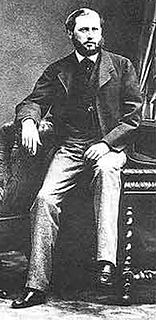 W
WOtto Graf zu Stolberg-Wernigerode was an Imperial German politician and the first Vice-Chancellor of Germany.
 W
WGeneral Sir Frederick William Trench, was a British Army officer and Tory politician.
 W
WRear-Admiral Sir Thomas Ussher KCH CB was an Anglo-Irish officer of the British Royal Navy who served with distinction during the French Revolutionary and Napoleonic Wars, and who in 1814 conveyed Napoleon Bonaparte into exile in Elba. He was nicknamed Undaunted Ussher.
 W
WSir George Whitmore, K.C.H. was a British Army officer.
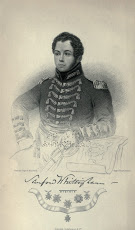 W
WLieutenant General Sir Samuel Ford Whittingham, whose Christian names were contracted by himself and his friends into "Samford", was a British and Spanish army officer during the Napoleonic Wars. Following the conflict he served in the British Army predominately in India.
 W
WSir Nesbit Josiah Willoughby was an officer in the British Royal Navy who was knighted in 1827, and made rear-admiral in 1847. He is related to Sir Hugh Willoughby, who also figures in British naval history.